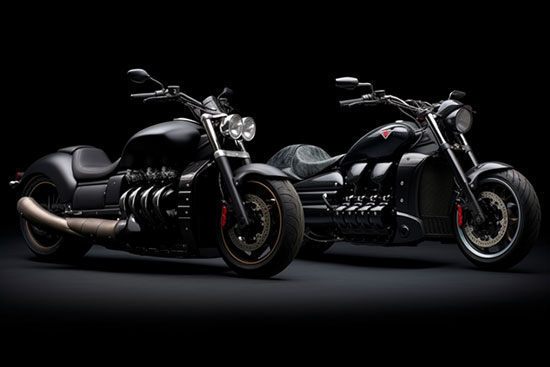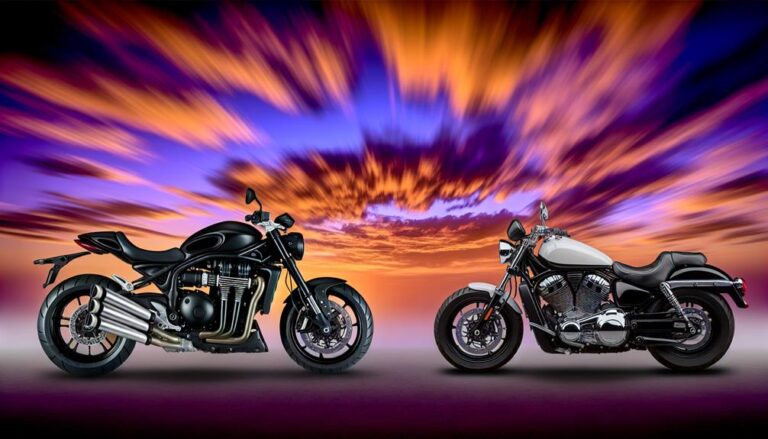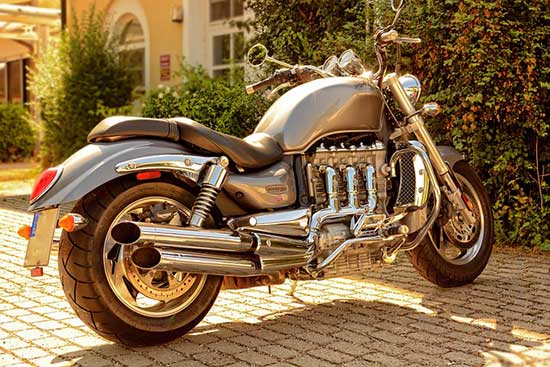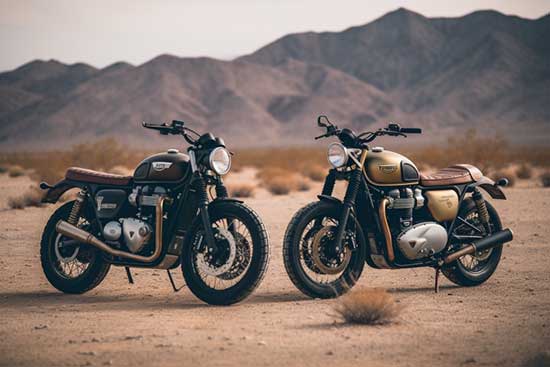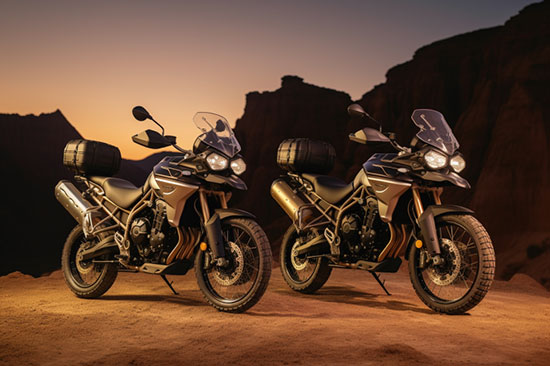When it comes to choosing a motorcycle, reliability is often a top consideration for riders. Among the many motorcycle manufacturers, Triumph and Ducati are two of the most renowned brands with a rich history and dedicated fan base.
A Brief History of Triumph and Ducati
Triumph Motorcycles is a British company, founded in 1902, that has built a reputation for producing reliable, stylish, and performance-oriented motorcycles. Some popular models include the Bonneville, Street Triple, and Tiger series.
Ducati, on the other hand, is an Italian company established in 1926. Known for their cutting-edge technology and performance, Ducati motorcycles have a distinct, aggressive design.
The Monster, Panigale, and Multistrada series are some of their most famous models.
Comparing Engine Reliability
Triumph Engines
Triumph engines are known for their reliability and long-lasting performance. They use three-cylinder engines in most of their models, providing a smooth, balanced ride.
Triumph’s engines are often praised for their low-maintenance requirements and dependable power delivery.
Ducati Engines
Ducati engines, particularly the L-twin engines, are famous for their high-performance capabilities.
However, they have been criticized for being more maintenance-intensive than their competitors. Despite this, Ducati has made significant improvements in recent years, enhancing the reliability and longevity of its engines.
Build Quality and Materials
Triumph Build Quality
Triumph motorcycles are well-regarded for their build quality. The company uses high-quality materials and components, ensuring that their bikes are built to last.
Triumph consistently receives praise for its attention to detail and overall fit and finish.
Ducati Build Quality
Ducati is known for its craftsmanship and use of premium materials. Their bikes often feature lightweight components such as carbon fiber and magnesium, contributing to their reputation for high-performance machines.
However, some riders have reported issues with the fit and finish of certain models, although these cases seem to be exceptions rather than the norm.
Suspension and Handling
Triumph Suspension
Triumph’s suspension systems are generally well-regarded, providing a comfortable and stable ride.
The company uses components from reputable manufacturers such as Öhlins, Showa, and WP, ensuring good handling and adjustability for various riding conditions.
Ducati Suspension
Ducati is known for its sport-oriented suspension systems, offering excellent handling and cornering capabilities.
Their bikes often come equipped with high-quality suspension components from Öhlins or Marzocchi. However, some riders may find Ducati’s suspension to be stiffer, sacrificing comfort for performance.
Braking Systems
Triumph Brakes
Triumph motorcycles typically come with reliable braking systems that offer strong stopping power and good modulation.
The company uses components from well-known manufacturers like Brembo and Nissin, ensuring high-quality performance and durability.
Ducati Brakes
Ducati is known for its high-performance braking systems, often using top-tier components from Brembo.
Their bikes offer exceptional stopping power, but some riders have reported that the aggressive braking characteristics can take some getting used to.
Electronics and Technology
Triumph Electronics
Triumph has made significant strides in incorporating advanced electronics and rider aids into their motorcycles.
Features like ride-by-wire throttle, multiple riding modes, traction control, and ABS are commonly found in their lineup, offering riders greater control and customization.
Ducati Electronics
Ducati is at the forefront of motorcycle electronics, incorporating cutting-edge technology such as cornering ABS, wheelie control, and quick shifters into their bikes.
Their sophisticated electronic systems provide exceptional performance and safety, but can occasionally be prone to glitches.
Maintenance and Repair Costs
Triumph Maintenance
Triumph motorcycles generally have lower maintenance and repair costs compared to Ducati. Their bikes are known for their reliability and infrequent need for repairs, making them more affordable to own in the long run.
Ducati Maintenance
Ducati motorcycles can be more expensive to maintain due to their high-performance nature and the need for specialized parts and services.
Routine maintenance tasks, such as valve adjustments, may also be more frequent and labor-intensive, leading to higher overall costs.
Warranty and Customer Service
Triumph Warranty
Triumph offers a two-year unlimited mileage warranty on their motorcycles, covering defects in materials and workmanship.
Their customer service is generally regarded as responsive and helpful, contributing to a positive ownership experience.
Ducati Warranty
Ducati provides a two-year unlimited mileage warranty for their bikes, similar to Triumph. While their customer service is often praised, some riders have reported difficulties with dealer networks and parts availability.
The Role of Riding Style
It’s essential to consider your riding style and preferences when choosing between Triumph and Ducati. Triumph bikes tend to be more versatile, offering a comfortable riding experience for various purposes.
Ducati motorcycles are more performance-oriented, with a focus on aggressive handling and speed.
Common Issues
Triumph Issues
While Triumph motorcycles are known for their reliability, some common issues include electrical gremlins, minor oil leaks, and occasional fit and finish inconsistencies.
Ducati Issues
Ducati bikes may experience issues related to their complex electronics systems, as well as occasional concerns with the fit and finish of certain models.
Resale Value
Triumph Resale Value
Triumph motorcycles tend to hold their value well due to their reputation for reliability and build quality. This can make them a good investment for riders looking to sell their bike in the future.
Ducati Resale Value
Ducati motorcycles also have a strong resale value, thanks to their iconic brand and performance reputation.
However, their higher maintenance costs may deter some potential buyers, potentially affecting resale value.
| Factors | Triumph Motorcycles | Ducati Motorcycles |
|---|---|---|
| Engine Reliability | Generally more reliable, lower maintenance | High performance, may require more maintenance |
| Build Quality & Materials | Consistent quality, durable materials | Premium materials, occasional fit & finish issues |
| Suspension & Handling | Comfortable, versatile suspension | Sport-oriented, stiffer suspension |
| Braking Systems | Reliable, strong stopping power | High-performance, aggressive braking |
| Electronics & Technology | Advanced features, more user-friendly | Cutting-edge technology, occasional glitches |
| Maintenance & Repair Costs | Lower overall costs, less frequent repairs | Higher costs due to specialized parts & service |
| Warranty & Customer Service | Two-year unlimited mileage warranty, responsive customer service | Two-year unlimited mileage warranty, some reported difficulties with dealer networks |
| Riding Style Suitability | Versatile, comfortable for various purposes | Performance-oriented, aggressive handling & speed |
| Common Issues | Electrical gremlins, minor oil leaks, occasional fit & finish inconsistencies | Complex electronics issues, occasional fit & finish concerns |
| Resale Value | Good resale value, lower maintenance costs | Strong resale value, potentially affected by higher maintenance costs |
Overall Reliability
While both Triumph and Ducati produce high-quality motorcycles, Triumph is generally considered to have a slight edge in terms of overall reliability.
Their bikes typically require less frequent and less costly maintenance compared to their Ducati counterparts.
However, it’s essential to keep in mind that each rider’s experience may vary, and both brands have plenty of satisfied, loyal customers.
Conclusion
When comparing Triumph and Ducati’s reliability, both brands have their strengths and weaknesses.
Triumph motorcycles tend to be more versatile and reliable, with lower maintenance costs, while Ducati bikes offer exceptional performance and cutting-edge technology.
Ultimately, the choice between the two comes down to personal preference and riding style. Research, test rides, and talking to other riders can help you make an informed decision that best suits your needs.

